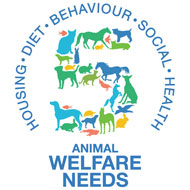Two-thirds of owners unaware of five welfare needs

The Veterinary Animal Welfare Coalition has been launched to help owners understand the five welfare needs.
A coalition of veterinary organisations has revealed that just one in three (35 per cent) pet owners is familiar with their pet's legal welfare needs.
The figures were released ahead of the tenth anniversary of the Animal Welfare Acts tomorrow (8 November).
While more than half of UK households own a pet, the annual PDSA Animal Well-being (PAW) Report has shown year-on-year that pet owners have a consistently low awareness of their legal welfare obligations.
The Veterinary Animal Welfare Coalition has been launched to help owners understand the five welfare needs. It encompasses leading veterinary and animal welfare organisations, including the BVA, BVNA, BSAVA, British Veterinary Zoological Society, PDSA, Blue Cross and RSPCA.
The 2006 Animal Welfare Acts established a duty of care and made it a legal requirement for owners to meet the five welfare needs; that is, providing appropriate housing, diet, social interactions, ability to behave naturally and freedom from pain, suffering, injury and disease.
PDSA research also shows that pet owners who feel informed about these five needs are significantly more likely to provide their pets with preventative healthcare.
Coalition chair James Yeates said the five welfare needs are a "fantastic 'umbrella' guide", but as each species has such varying welfare needs, it's essential that owners can put theory into practice.
He added: "Our understanding of animal welfare science has come such a long way over the past 50 years so we'd really like pet owners to pop into their local veterinary practice, where they will be able to get tailored, up-to-date advice for their pets, whether that's a horse or a hamster!"
Pet owners are advised to speak to their local veterinary practice for advice on the five welfare needs and how these apply to their individual pet's species, size and age.



 The Animal and Plant Health Agency (APHA) has updated its online reporting service for dead wild birds.
The Animal and Plant Health Agency (APHA) has updated its online reporting service for dead wild birds.